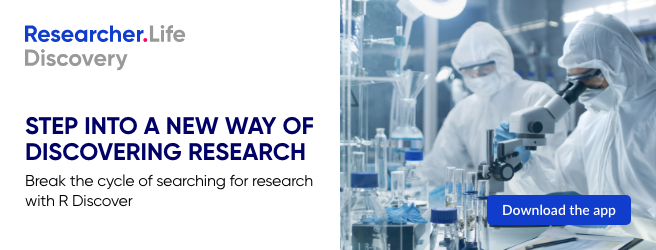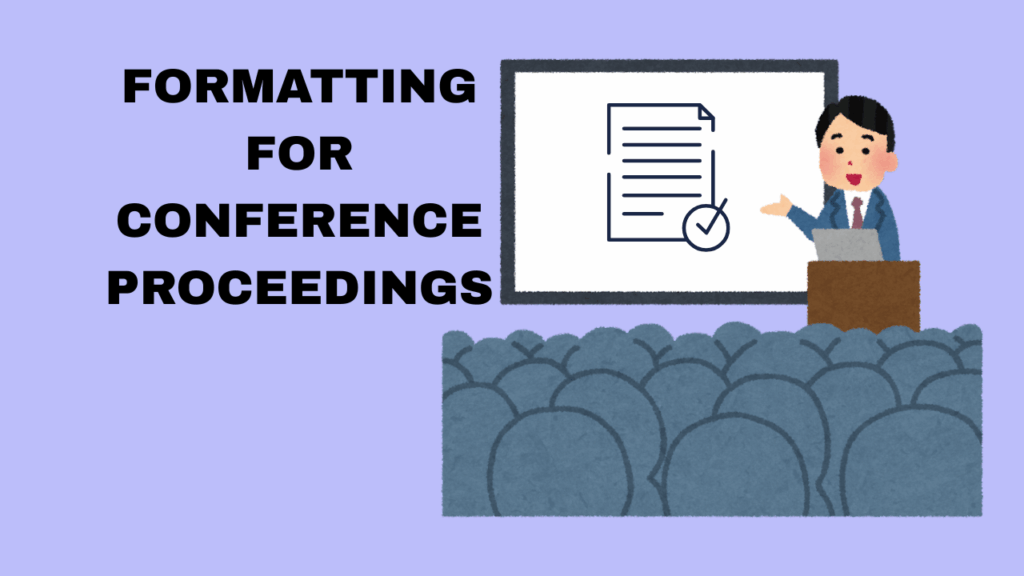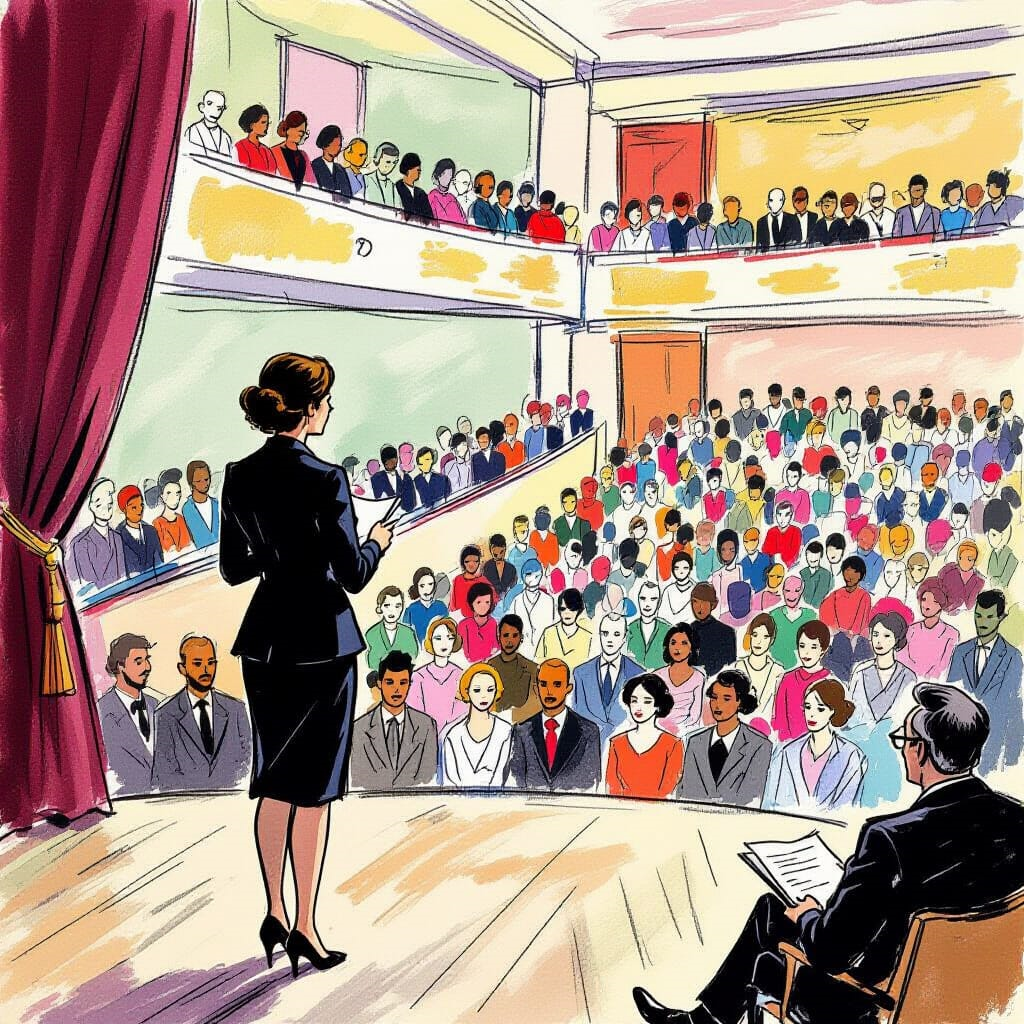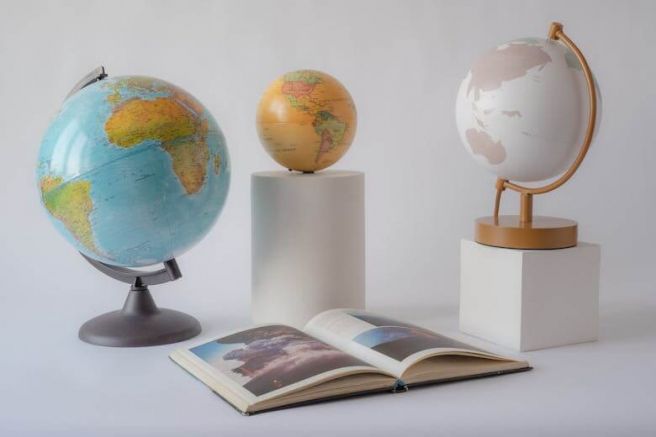Code Breakers: When a CRISPR enthusiast meets a Nobel Laureate
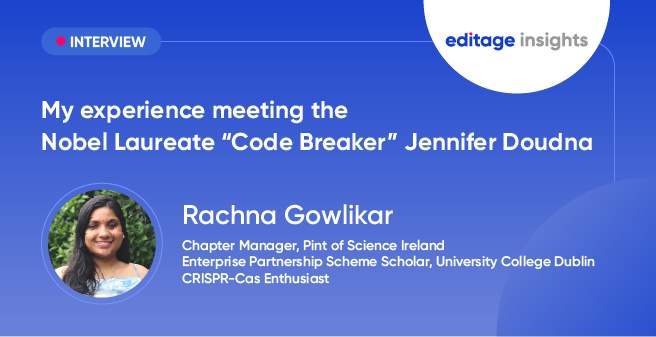
Jennifer Doudna noticed my university affiliation and commented, “You’ve come a long way from Ireland.” That simple observation broke the ice, and before I knew it, we talked about my research. -Rachna Gowlikar
Radhika: There is nothing more infectious than the excitement of a student who is passionate about their field of study. To dream and work towards the goal – against all kinds of odds is a common theme for many. Seeing the dreams realized and to meet a scientist who inspired you to walk that path – that is something that not everyone gets to experience! Here, I ask Rachna Gowlikar to talk about her recent encounter with the Nobel Laureate Prof. Jennifer Doudna.
Radhika: You recently attended a conference in which you presented your research. Could you give our readers a summary of what the research was about?
Rachna: As a first-year PhD student at University College Dublin, working under Dr Rainer Melzer and Dr Susanne Schilling in collaboration with Plantik Biosciences, Paris, my research focuses on establishing CRISPR technology in hemp. Hemp, a versatile plant with over 50,000 uses across industries like medicine, textiles, paper, and CBD, holds significant potential for sustainable development. My work aims to create CRISPR-edited hemp mutants to enhance these applications and contribute to building a carbon-neutral society.
I recently had the opportunity to present my preliminary findings at the CRISPR Frontiers Meeting at Cold Spring Harbor Laboratory.
Radhika: Tell us a few things about your experience studying abroad and also presenting at an international conference.
Attending the CRISPR Frontiers 10th Meeting was my first international conference, and as a first-year PhD student, I was thrilled to present my poster alongside more senior researchers. The opportunity to network with experts, exchange ideas, and explore new research areas was invaluable.
Studying abroad has been a dream come true- an opportunity to challenge myself academically and personally. It has been rewarding to experience new cultures, independence, and growth. I’m deeply grateful to my mentors, supervisors, and collaborators, who have been incredible sources of support throughout this journey. Their guidance has been pivotal in my development as a researcher.
Radhika: Can you tell us what got you interested in CRISPR?
Rachna: My fascination with CRISPR began a few months before it was recognized with a Nobel Prize. From the moment I first encountered the technology in research papers, I was captivated by its potential. For reasons I can’t fully explain, I found myself consistently drawn to studies that employed CRISPR, almost as if I was seeking them out subconsciously. What intrigued me most was the elegance and precision of the tool- a model that allows us to edit specific parts of the genome in animals, plants, and even humans.
The sheer possibility of rewriting genetic information at will was thrilling, and the more I read about CRISPR, the deeper my interest grew. Understanding how this powerful mechanism worked- and imagining its potential to transform fields from medicine to agriculture- was a source of constant excitement for me. It wasn’t just the technology itself but the doors it opened to entirely new realms of research and innovation that truly captivated me.
Radhika: What are some of the memorable experiences you have had as a student?
Rachna: One of my most memorable student experiences has been sharing my research as a poster at an international conference. Engaging with leading experts, like meeting Jennifer Doudna at the CRISPR Frontiers Meeting, was truly inspiring.
Another highlight has been exchanging ideas with an interdisciplinary team and balancing academic research with industry partnerships. This blend of academia and real-world application has deepened my understanding and sparked new ideas. Beyond the conference, the friendships I’ve made during our social gatherings and navigating the highs and lows of PhD life together have been invaluable. These experiences have shaped my growth as both a researcher and an individual.
Radhika: You mentioned your meeting with the Nobel Laureate Prof. Jennifer Doudna. Tell us about that experience.
Rachna: Meeting a scientific idol is a surreal experience that can stir a whirlwind of excitement, nerves, and inspiration all at once. For me, that moment came when I had the honour of meeting Nobel Laureate Jennifer Doudna, a scientist whose groundbreaking work on CRISPR had captivated me since my undergraduate days.
It all started when I was first introduced to the revolutionary potential of CRISPR by my mentor, Dr. Anil Kumar Challa. I was fascinated, diving deep into its discovery, how it all began, and how it evolved into a powerful tool for genome editing. From the moment I learned about it, I dreamed of meeting the pioneering mind behind it all, Jennifer Doudna.
That dream came true when I attended the CRISPR Frontiers: Genome Engineering 10th Meeting at Cold Spring Harbor Laboratories in New York. When I saw her for the first time in person, it was as if the years of reading her work and studying CRISPR came flooding back to me all at once. I was instantly transported to my undergraduate years, to countless hours spent poring over articles and marvelling at the possibilities her research had opened up. But the reality of seeing her there, in front of me, was overwhelming. My excitement was met with equal parts nervousness, and in that moment, I found myself at a loss for words. Everything felt blank.
Throughout the five-day conference, I slowly gathered the courage to approach her. On one of those days, I decided to sit in the first row, hoping to be close to her, and as fate would have it, she took the seat right next to me. My nerves were palpable; I could feel a chill down my spine as I tried to steady myself. Deep breaths were my only strategy to calm down, to muster up the courage to greet her.
Finally, after the day’s talks, I turned to her, saying, “It’s lovely to meet you at this conference.” To my relief, she smiled warmly and replied, “Likewise.” In that instant, all my anxious thoughts seemed to quiet down, and a rush of adrenaline filled the space they had left behind. It was surreal- there I was, speaking to the scientist who had inspired me for so many years.
Jennifer Doudna noticed my university affiliation and commented, “You’ve come a long way from Ireland.” That simple observation broke the ice, and before I knew it, we talked about my research. I told her about my work, and she was genuinely interested in my work, to my delight. Her eyes lit up as I described my project, particularly when I mentioned I was working with hemp. She encouraged me, expressing how fascinating she found the project and remarking on how valuable the conference sessions must have been for my research.
Her enthusiasm was contagious, and all my nervousness melted away at that moment. I felt a connection transcending the mentor-student dynamic; it was as if we were just two scientists excitedly discussing research that could potentially change the world. At the end of our conversation, I gathered the courage to ask if I could capture this incredible moment. She instantly agreed, and I was over the moon.
Meeting Jennifer Doudna was a defining moment for me- not only because I had the chance to meet a Nobel laureate but because her kindness and genuine interest in my work gave me new confidence. As a first-year graduate student, her words and encouragement made me feel that I was on the right path and that my research mattered.
The day I met her was more than just a memorable encounter; it was a powerful affirmation that this journey, which had just begun for me, was full of possibility. It was a day I will always cherish- one that I know is the beginning of a lifelong passion to explore, innovate, and contribute to a field with endless potential. Meeting Jennifer Doudna didn’t mark the end of a dream but the beginning of an exciting new chapter in my career as a researcher.
Radhika: What are some tips you could give to others interested in science communication?
Rachna: Science communication starts with simply sharing your work and ideas and networking with others in the field. My advice is to begin by explaining your research in a way that resonates with non-scientific audiences—focus on why it matters, not just how it works. Engage in discussions about science in everyday contexts, whether through social media, blogs, or public talks. There are many resources available—online courses, workshops, and science communication platforms—that can help you refine your skills. Above all, stay curious, be open to feedback, and practice making science accessible to everyone.
About Rachna Gowlikar:
Rachna is a CRISPR enthusiast, studying plant molecular genetics at University College Dublin, Ireland. She believes that science is a roller-coaster ride that combines collaboration with curiosity. For her, science communication is another way to understand the philosophy of science.She is actively part of Pint of Science Ireland, and SoapBox Science Ireland non-profit organisations. Outside the lab, she paints, dreams of Nobel prizes, and delves into mystery-laden discoveries through books.
You can follow her journey through social accounts:
Linkedin: Rachna Gowlikar
Instagram: @hempgirl_crispr
X: gen_microlife


